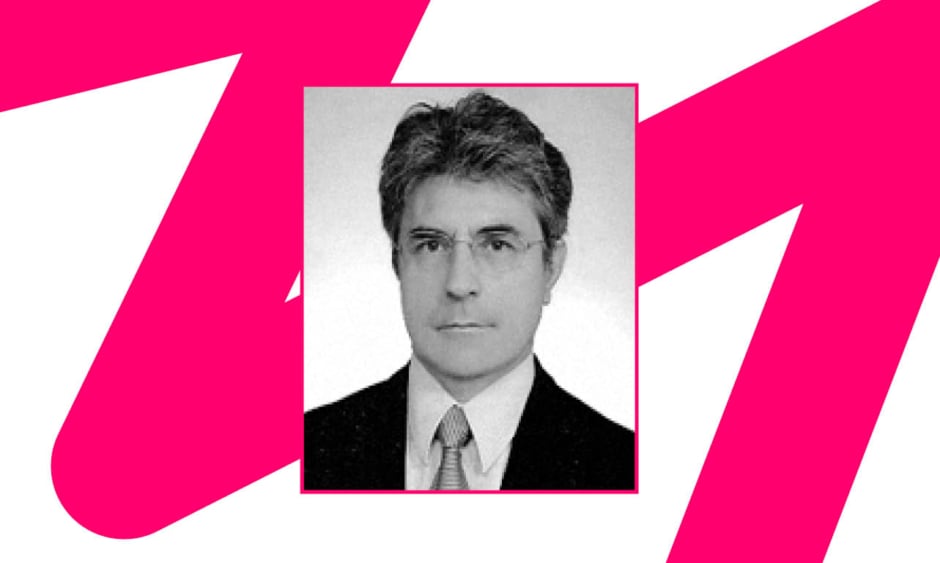Çetin Erol | Cardiologist at İbn-i Sina Hospital, Faculty of Medicine, Department of Cardiology, Ankara University, Türkiye, and Editor-in-Chief of EMJ Cardiology
Citation: EMJ Cardiol. 2022; DOI/10.33590/emjcardiol/10169136. https://doi.org/10.33590/emjcardiol/10169136.
![]()
We are honoured to share our EMJ Cardiology 2022 in review interview with Çetin Erol, Cardiologist at İbn-i Sina Hospital, Faculty of Medicine, Department of Cardiology, Ankara University, Türkiye, and Editor-in-Chief of EMJ Cardiology.
Over the last year, do you or the Department of Cardiology and Ankara University, Türkiye, have any achievements that you would like to share?
Over the last year our department has participated in two international Phase III studies on Factor XIa inhibitors in patients with acute coronary syndrome and atrial fibrillation. These studies should play a part in developing another more effective class of anticoagulation drugs.
This year’s European Society of Cardiology (ESC) focused a great deal on digital health, why do you feel that this has become such an area of focus in the field of cardiology?
Heart disease affects much of the world’s population. The rapid development of digital health technologies and clinical support systems is providing patients and their doctors access to augmented intelligence solutions to diagnose these conditions. An opportunity therefore exists for targeted screening for conditions such as cardiovascular disease, heart rhythm changes, valvular heart disease, structural abnormalities, and more subtle, rarer, inherited heart conditions.
When you attended ESC 2022, can you name a particular presentation of piece of research shared that stood out to you, and can you explain why it resounded with you so much?
On attending ESC 2022, four ESC Guidelines on cardio-oncology particularly stood out to me, including ESC Guidelines on cardiovascular assessment and management of patients undergoing non cardiac surgery, ESC Guidelines for the management of patients with ventricular arrhythmias and the prevention of sudden cardiac death, and ESC/European Respiratory Society (ERS) Guidelines for the diagnosis and treatment of pulmonary hypertension. These are the most important guidelines that will help the clinicians in their daily practice. Furthermore, new research presented at ESC Congress 2022 on 26th August suggests that a polypill, containing aspirin and medication to lower lipids and blood pressure, is more effective in preventing further cardiovascular events after a heart attack than taking the drugs separately. This suggests that combining the treatments into one polypill would improve adherence to treatment and could represent practice changing research.
What is the most exciting break-through or piece of research that you have seen in the discipline of cardiology over the last 12 months?
I have been particularly excited about recommended cornerstone therapies for individuals with heart failure with reduced ejection fraction, including angiotensin-converting enzyme inhibitors or angiotensin receptor-neprilysin inhibitors, β-blockers, aldosterone receptor antagonists, and sodium-glucose co-transporter-2 (SGLT2) inhibitors; especially SGLT2 inhibitors. SGLT2 inhibitors reduce the risk of cardiovascular death and hospitalisations for heart failure in a broad range of patients with heart failure, supporting their role as a foundational therapy for heart failure, irrespective of ejection fraction or care setting. They have already been implemented into guidelines for heart failure treatment.
Throughout 2022, EMJ Cardiology has published a lot of content on the relationship between cardiovascular disease and HIV infection. Can you speak to why this has become such an important aspect of contemporary cardiology research?
In the midst of the COVID-19 pandemic, it is easy to forget that millions of people have been facing an epidemic of their own: HIV. With over 1.5 million new infections last year, the threat of HIV on human health is ever-present, and perhaps more urgent than ever.
Looking forward to 2023, are there any techniques or technologies that you expect to become a focus for the cardiology research community?
I am looking forward to seeing what happens over the next year with transcatheter mitral and tricuspid valve intervention. After aortic valve implantation, these two valves could also be easily implanted by cardiologists. This offers patients an alternative to surgery, which is often preferred.
Can you talk about any areas of research that are currently ongoing and that you are looking forward to learning more about over the coming year?
I am looking forward to seeing how research develops around the application of genetics and genomics to cardiovascular disease and to prevent cardiovascular diseases. Furthermore, I believe there is a lot more for cardiologists to learn about the value clean water, clean air, and healthy food can have on human health.
Where do you expect the main focus of the Department of Cardiology at Ankara University to lie over the next year? Have you set specific goals or identified any key areas of interest moving into 2023?
In 2023, we want to re-design our department. We would love to include some new machines for echocardiography and angiography. Our department is particularly active in electrophysiology and ablation.








